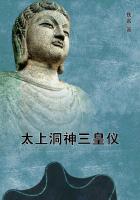In a small, pretty villa, on the banks of the Arno, Ronald Earle established himself with his young wife. He had gone direct to Eastham, after leaving Earlescourt, his heart aching with sorrow for home and all that he had left there, and beating high with joy at the thought that now nothing stood between him and Dora.
He told her of the quarrel--of his father's stern words--and Dora, as he had foreseen clung round his neck and wept.
She would love him all the more, she said. She must love him enough to make up for home and every one else.
Yet, strange to say, when Ronald told his pretty, weeping wife all that happened, he made no mention of Valentine Charteris--he did not even utter her name.
Ronald's arrangements were soon made. He sent for Stephen Thorne and his wife, and told them how and when he had married Dora.
"I am sorry for it," said Stephen. "No good will ever come of such an unequal match. My girl had better have stayed at home, or married the young farmer who loved her. The distance between you is too great, Mr. Earle, and I fear me you will find it out."
Ronald laughed at the idea that he should ever tire of Dora. How little these prosaic, commonplace people knew of love!
The good lodge keeper and his wife parted from Dora with many tears. She was never to brighten their home again with her sweet face and gay voice. She was going away to strange lands over the sea. Many dark forebodings haunted them; but it was too late for advice and interference now.
The first news that came to the villa on the banks of the Arno was that Stephen Thorne and his wife had left the lodge and taken a small farm somewhere in the county of Kent. Lady Earle had found them the means, and they had left without one word from Lord Earle. He never asked whither they had gone.
Despite his father's anger and his mother's sorrow, despite his poverty and loss of position, Ronald for some months was very happy with his young wife. It was so pleasant to teach Dora, to watch her sweet, dimpled face and the dark eyes grow large with wonder; to hear her ******, ***** remarks, her original ideas; to see her pretty, artless ways; above all, it was pleasant to be so dearly loved.
He often thought that there never had been, never could be, a wife so loving as Dora. He could not teach her much, although he tried hard. She sang ****** little ballads sweetly and clearly; but although master after master tried his best, she could never be taught to play--not even as much as the easy accompaniments of her own songs. Ronald hoped that with time and attention she would be able to sketch, but Dora never managed it. Obediently enough she took pencil and paper in her hands and tried, but the strokes would never come straight. Sometimes the drawing she made would resemble something so comical that both she and Ronald laughed heartily; while the consciousness of her own inferiority grieved her, and large, bright tears would frequently fall upon the paper. Then Ronald would take the pencils away, and Dora would cling around his neck and ask him if he would not have been happier with a cleverer wife.
"No, a thousand times, no," he would say; he loved Dora better in her artless simplicity than he could have loved the cleverest woman in the world.
"And you are quite sure," said Dora, "that you will never repent marrying me?"
"No, again," was the reply. "You are the crowning joy of my life."
It was pleasant to sit amid the oleanders and myrtles, reading the great poems of the world to Dora. Even if she did not understand them, her face lighted with pleasure as the grand words came from Ronald's lips. It was pleasant, too, to sit on the banks of the Arno, watching the blue waters gleaming in the sun. Dora was at home there. She would say little of books, of pictures, or music; but she could talk of beautiful Nature, and never tire. She knew the changing colors of the sky, the varied hues of the waves, the different voices of the wind, the songs of the birds. All these had a separate and distinct meaning for her.
Ronald could not teach her much more. She liked the beautiful poems he read, but never could remember who had written them.
She forgot the names of great authors, or mixed them up so terribly that Ronald, in despair, told her it would be better not to talk of books just yet--not until she was more familiar with them.
But he soon found out that Dora could not read for many minutes together. She would open her book, and make a desperate attempt; then her dark eyes would wander away to the distant mountains, or to the glistening river. She could never read while the sun shone or the birds sang.
Seeing that, Ronald gave up all attempts at literature in the daytime; when the lamps were lighted in the evening, and the fair face of Nature was shut out, he tried again, and succeeded for ten minutes; then Dora's eyes drooped, the white lids with their jetty fringe closed; and with great dismay he found that over the masterpieces of the world Dora had fallen asleep.
Two long, bright years had passed away before Ronald began to perceive that he could educate his pretty young wife no further.
She was a strange mixture of ignorance and uncultivated poetry.















